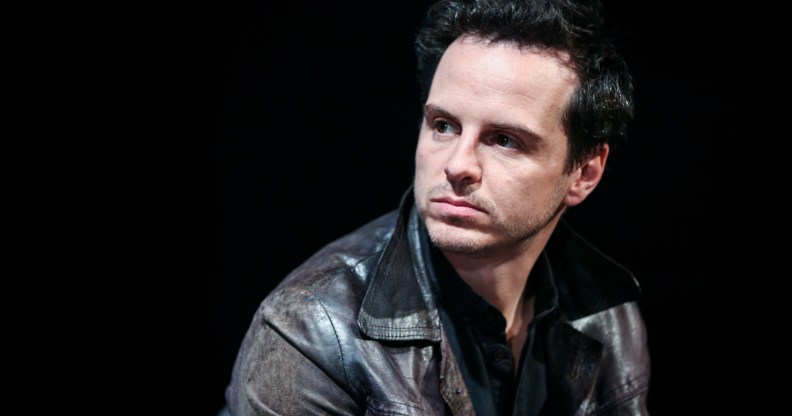Fleabag’s ‘hot priest’ Andrew Scott wants you to stop using the term ‘casual sex’

Andrew Scott. (Beata Zawrzel/NurPhoto via Getty Images)
Andrew Scott has said that he dislikes the “judgement” that the term “casual sex” invokes because it can make people feel shameful about their sex lives.
The Fleabag star unpacked what the phrase means and argued that the judgement it provokes is “really dangerous”.
Speaking on the How To Fail with Elizabeth Day podcast, Scott said that casual sex can be “really important” despite the “taboo” tacked to it.
“The idea that you can’t extract any kind of meaning from casual sex,” the 43-year-old actor said, “I think that’s really dangerous because it invokes shame in people.”
“You learn from people,” he said. “It’s not about the length of time you spend with somebody.”
Scott’s blockbuster role was the ‘hot priest’ in the BBC One series, playing a family priest who is, well, sufficiently hot.
Recounting the success of the show nearing a year on, he praised it for exploring how casual encounters can help in “understanding our sexuality”.
‘You have to be able to make mistakes and you have to find out who you are’, says Andrew Scott.
“In a way, that’s what Fleabag is about.
“You can have incredibly potent, lifelong effects from meeting somebody over two weeks, or one week, or, you know, three hours. You go, oh my God I learned something.
“I think if you’re going through that situation where you’re having casual sex with people, sometimes that’s what you need to do.
“You have to be able to make mistakes and you have to find out who you are.”
Scott then quotes one of his “heroes” – podcast host Esther Perel.
“She says this great thing about the beginning of long-term relationships to ‘bring your kinks early’, which I think is really such a wonderful thing.”
He added: “It just means to have an understanding in the same way you have tastes in what kind of furniture you might buy that you go, ‘this is what I like’.”
In the list of terms and phrases Scott dislikes is also being called “openly gay”.
He described last year how, when the media describes his sexuality in this way, “it implies a defiance I don’t feel”.
“You’re never described as ‘openly gay’ at a party – ‘This is my openly gay friend Darren’, ‘She’s openly Irish’.”

